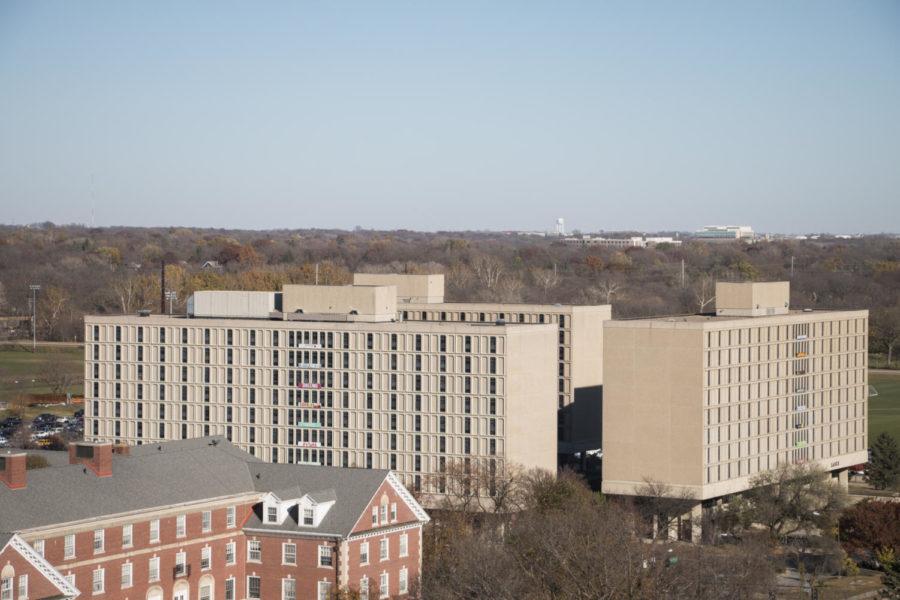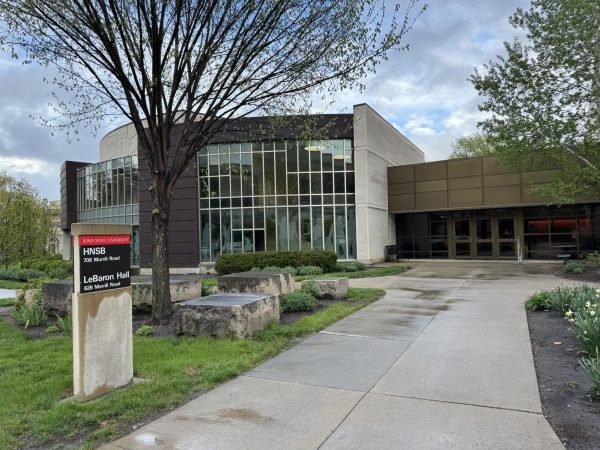Lengthy legal battle opened one university’s records
May 1, 2003
Part of a weeklong series
Although university judicial records are closed at Iowa State, this is not the case for some other universities across the United States.
In Georgia, the state Supreme Court ruled all university judicial hearings should be open to the public under the state’s open meetings law. The decision came after a three-and-half-year legal battle.
The battle began when the University of Georgia student newspaper, The Red & Black, filed two open records requests for information on the final outcomes of several prominent cases at the university in the fall of 1989, said Harry Montevideo, publisher of The Red & Black. A fraternity member had been taken to the hospital after drinking too much alcohol, and another student had set fires to fliers advertising resources available to gay and lesbian students.
Montevideo said the newspaper was able to report on the incidents, however, they were never able to follow up on either story and report the punishment the student and fraternity received from the university for these incidents.
The newspaper discussed its desire to acquire more information about the incidents with a prominent lawyer, Montevideo said. The lawyer believed the school should be required to provide access to their hearings due to Georgia’s open meetings law and agreed to take the case pro bono.
The newspaper first filed a lawsuit in the Athens-Clarke County Court. The judge ruled against the newspaper and in favor of the University of Georgia. Montevideo said the newspaper then appealed the decision directly to the Georgia Supreme Court.
He said the paper’s attorney filed several lengthy documents during the appeal. Some of those documents cited support from several other journalists and newspapers in Georgia.
The Georgia Supreme Court ruled in favor of The Red & Black after hearing the case.
“It was obviously a huge victory,” Montevideo said.
He said reporters have been allowed to attend university judicial hearings after the ruling.
This ruling has still provided some problems for the reporters at The Red & Black and other newspapers. Montevideo said university officials do not post what hearings were about on a daily basis, which requires reporters to attend every hearing. The majority of the hearings concerned roommate disagreements or alcohol violations, situations the newspaper did not determine newsworthy, he said. An additional problem with the ruling came several years after the decision. Students now have two options after they have violated the University of Georgia’s student conduct code.
The student can either chose an informal or formal process, said Jim Bove, assistant dean of students for judicial programs at the University of Georgia. The formal process requires students to attend a hearing open to media. The informal process requires students accept responsibility for their actions and accept the sanctions the university decides to impose.
Bove said in the informal process media do not attend, a student just meets with him or another judicial programs staff member.
“Well, 99 times out of 100 the person says they want to plea bargain,” Montevideo said.
As a result, Montevideo said there aren’t many hearings at the university anymore. He said there are only hearings for major cases, such as crimes of violence.
Bove said the outcome of every case is still made available to the public whether the student chooses an informal or formal process.
“Any time that charges are brought up on a student, we forward that information to our office of public information,” he said.
The UGA Dean of Students Office forwards the student’s name, the violation and the sanctions the student receives to the Office of Public Information, Bove said.
“Normally, anyone who is ever interested is from our school newspaper,” he said.
Bove said he believes students at the university do not like the new open records policy.
“I think, for the most part, students don’t like it because they feel it is public humiliation,” he said.
Students are embarrassed faculty may find out about their troubles with the university, Bove said. He also said the majority of students who meet with the judicial affairs office are only in trouble once.
“The biggest downfall I would see from students is people failing to come forward,” Bove said. For instance, students who have been raped might not want to come forward if they know it will be made public information, he said.
Similar court rulings have been made in other states as well. Mike Hiestand, a lawyer with the Student Press Law Center, said a similar ruling has allowed records in Ohio to be open to the public up to a certain point. A ruling in Louisiana also made judicial records public, but a subsequent ruling counteracted the first, Hiestand said. He said there are also a few private colleges that have open university judicial records.
Although open judicial records are standard policy for some universities, for now, the majority of schools continue to have a closed system.
















